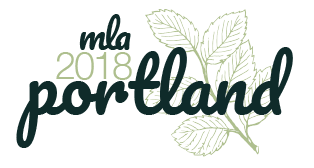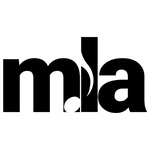2018 Meeting in Portland, Oregon

January 31-February 4, 2018
Hilton Portland Downtown
921 SW Sixth Avenue
Portland, Oregon, 97204
Conference Program
“And a great singer leaves so little behind”: Stanford’s Jenny Lind Collection
Jenny Lind (1820-1887) was one of the 19th century’s most celebrated musicians, but sadly, her star has dimmed. In advance of the 2020 Lind bicentennial, the presenter will highlight significant aspects of Lind’s life and activities in Europe and the United States, introducing research materials from the Stanford Libraries’ Jenny Lind Collection, as well as select Lindiana available digitally on the web.
Diversity, Feminism, and the Arts: A Wikipedia-Based Course and Learning Project
This presentation will explain this multifaceted project, including how the library will partner with faculty from different disciplines to coordinate similar projects. It will also outline how the Library course will support the year-long project, while also developing meaningful knowledge and teaching transferable skills for students in diversity, technology, information literacy, and communication.
New Paradigms for Space Utilization in Music Libraries
This session is designed to give an overview of how the availability of digital and electronic resources, as well as new methods of teaching music to both undergraduate and graduate students, affects space planning in music libraries. After an introduction, three speakers will address these issues as they pertain to different kinds of libraries and different kinds of spaces.
Current Issues in Music Reference: New Directions for Collections and Services
The ready availability of information on the internet, as well as our ever-expanding toolkit of online library reference sources, have dramatically changed reference collections and services at many libraries. This session will take a closer look at the implications these changes have had for music reference collections and services.
Playing Boss: Learning from staff supervisory experiences in a music library setting
Topics addressed will include making good hiring decisions, developing a positive feedback loop with staff, how to delegate effectively, and how to effectively advocate for your staff to administration who may not be sympathetic to the unique needs of music collections and their core patron group.
Critical Information Literacy: An Introduction and Conversation
Drawing on theories of critical literacy and critical pedagogy, CIL offers teaching librarians a way to move beyond traditional concepts of information literacy as training in research competencies. Many conversations on CIL take place virtually, through sites such as critlib.org,but a growing body of published literature allows for wider engagement with critical information literacy in practice.
Diversity & Inclusion through the Lens of Critical Librarianship
Critical librarianship (CritLib) impacts more than information literacy instruction; it extends to a multitude of areas that intersect with LIS, including social justice, queer studies and critical race theory. Using the framework of critical librarianship, this townhall/panel session will focus on the intersectionality and the institutional power dynamic(s) of diversity and inclusion in MLA and the field of music LIS.
Deriving Faceted Terms from Library of Congress Subject Headings for Music
The MLA-CMC Vocabularies Subcommittee has studied the issue for the past several years, and in collaboration with Gary Strawn (of Authority Toolkit fame) has designed a computer algorithm to analyze the contents of LCSH music headings and derive faceted terms that can be automatically added to bibliographic records. The speakers will unpack the many complexities and limitations built into LCSH practice and demonstrate the powerful potential of the algorithm in large bibliographic databases.
Cataloging and Metadata Town Hall
This session features updates and special topics in music cataloging and metadata as well as an open discussion period; it is a forum for sharing information on important topics that do not each require their own program sessions.
Now Hear This!: Observations on Building Local Music Collections
Building a local music collection can be a daunting project. Do you collect one genre or all genres of a local scene? How do you work with donors? Do you collect digital items and how? What rights issues must you plan for? How do you promote the collection? This panel will explore these issues and more.

